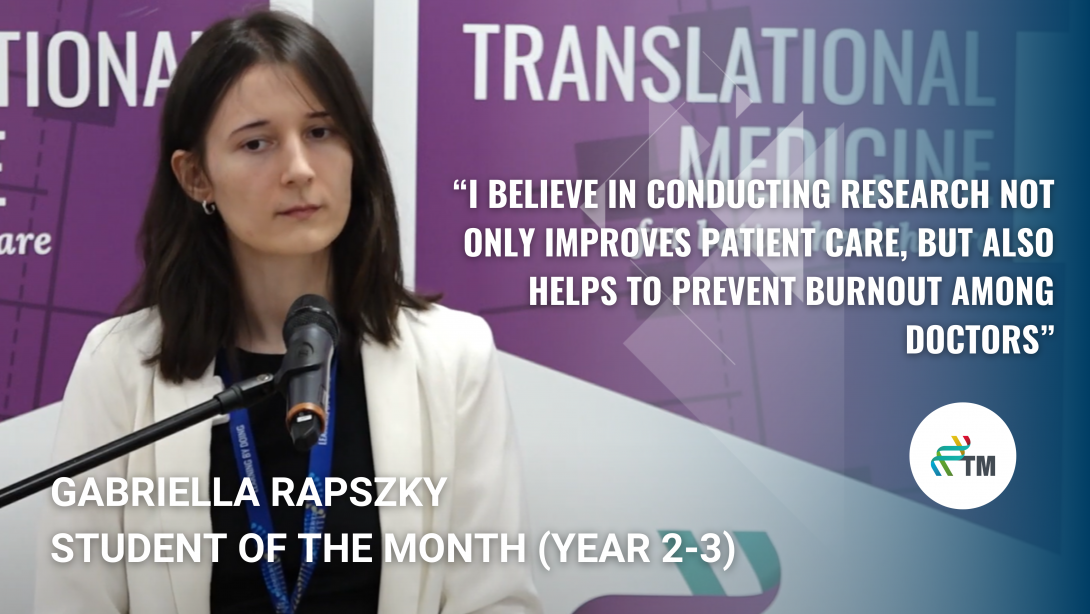
She is a dedicated student of the Pharma & Derma & Immuno Group, whose research topics are related to bloodstream infections. She has recently published an article related to sepsis in a high-ranked journal. In January, Gabriella Rapszky was named Student of the Month (Year 2-3) at the Centre for Translational Medicine.
Dr. Rapszky started her Ph.D. training at CTM as a resident of the Department of Emergency Medicine, Semmelweis University. “After graduating as a medical doctor, I wanted to develop professionally and do research. I was interested in the opportunity to do my Ph.D. training at the Centre for Translational Medicine alongside my clinical work. I also liked that I could answer questions that arose from my clinical work with my research.” Dr. Rapszky's first project was related to sepsis: she investigated the effectiveness of rapid molecular assays in the diagnosis of bloodstream infections. Her clinical question was the diagnostic accuracy of rapid tests.“The idea of this topic originated from my supervisor, Dr. Bánk Fenyves, who is also doing research in this field. He had also done research on this subject at Harvard Medical School, and thanks to his connections in Boston, a researcher from there, Michael R. Filbin, joined our project. Our SMS, Dr. Dorottya Bastidas-Gergő, and our statisticians, Anna Walter and Tamás Kói also helped a lot in my work.”
“Our clinical question was important because rapid molecular tests are used worldwide, but their accuracy was not known. We evaluated more than 60,000 scientific papers, and our research showed that these tests are still not sensitive enough to replace blood culture as a stand-alone diagnostic tool. However, they can be used as a complementary test to increase the overall detection rate of pathogens.” The research that revealed this result was recently published in eClinicalMedicine, a D1 journal of The Lancet family. Next January, Dr. Rapszky will spend a year as a Ph.D. student at Harvard Medical School. At Boston, she will continue her research with Michael R. Filbin. After returning home, she would like to focus on completing her specialist training, and then return to academic work. She believes that conducting research not only improves patient care, but also helps to prevent burnout among doctors.
(Szabó Emese)